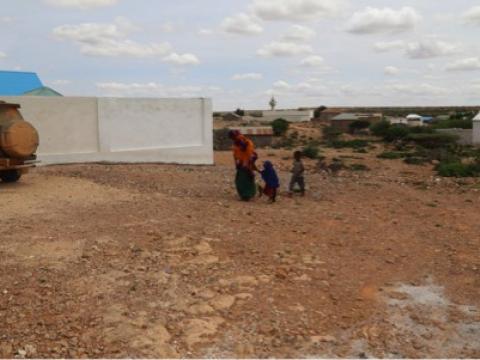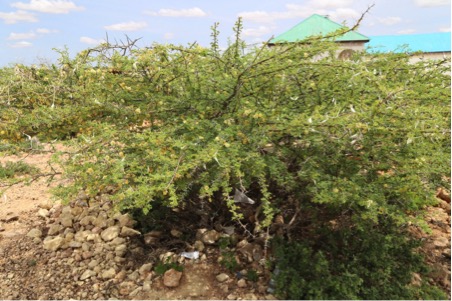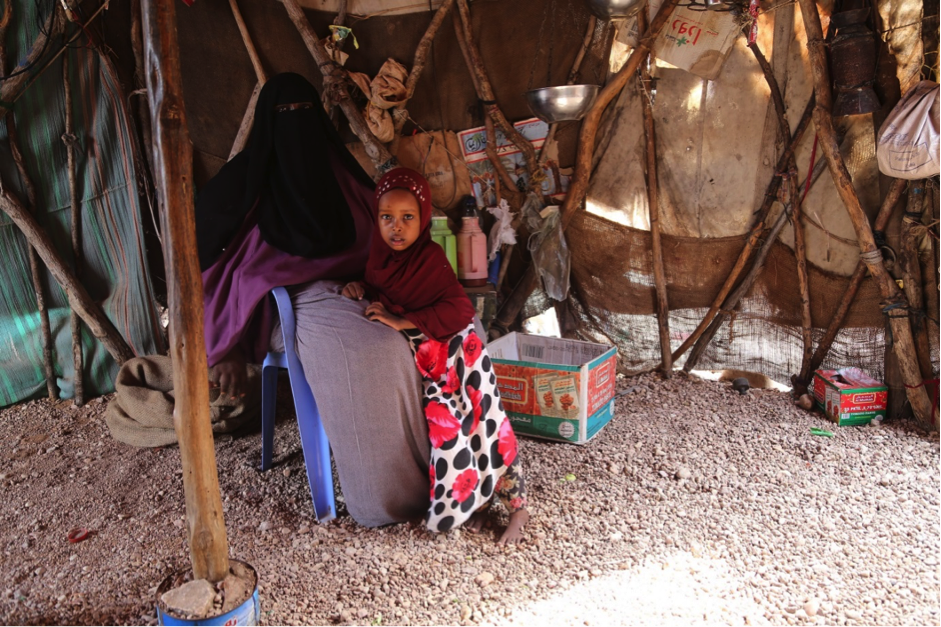Boiled herbs to bottled medicine

For residents of Eyl in Nugal region, having a health facility is not a basic want but a basic need. For years, the community had to contend with no health facility and they were forced to walk long distances or sell some of their property to get transport to a nearby health centre that was kilometers away.
Aisha a resident in Dhiganle village knows this too well. For a number of years she has experienced a lot of problems including health complications and malnutrition due to lack of access to a health facility.
She recalls how when her daughterAsmabecame sick and she was forced to rush her to Garowe for treatment. To reach the urban town, she needed to have money to cater for transport, accommodation and other cost that would be incurred while at the urban centre.
“For the well being of my daughter, I sold my 6 goats in order for her to be treated. I hired a bus to reach to town. I also incurred other expenses like transportation to the hospital once I got to the town, drugs and accommodation for almost one month.’
Her other daughter Anisa was constantly sick, suffering from fever, cough and diarrhea and she would treat her using traditional herbs.
“I used to put a cloth in cold water then use it to rub her hot body. I would then boil water from the acacia tree, that the community used as a medicinal herb and give her to drink which as a community, they believed would reduce dehydration in the children.”
Pastoralists use different trees like acacia for healing purposes. They cut the root of the acacia and then crush it into pieces, mix it with water, filter it and then give it to sick children. The children are only given two sips or it would cause problems such as severe headaches and sweating.
The acacia tree that villagers fo Dhiganle, would boil the roots to give to their sick children
The use of the acacia tree as medication is now a thing of the past for Aisha and the community members of Dhiganle village. Aisha is elated because of the Maternal Health Centre (MCH) that was built in her village by World Vision.
When her younger daughter Khadijo got ill, she took her to the MCH where she was diagnosed with a fever and diarrhea and was treated by a nurse and given the right medication.
“I am happy that we have good services for our children and ourselves. It is easy for us to come and get treated at the MCH as it is fully equipped and has the required drugs. I thank World Vision for setting up this health service at the village.”
Mahubo, a nurse at the Dhigale health centre, attending to Aisha
Not far off from Aisha, is Cadar a small-scale trader, owning a tea shop in Maraya village, Eyl district. Cadar looks after six family members. She lost most of her livestock due to the prolonged drought that hit the area. “The drought has killed 6 goats from the 10 goats I owned,” she sadly says.
It has also affected her livelihood source as she was relying on the shop as a source of income. Despite the drought, Cadar has a reason to smile because of the health facility that they can easily access.
“When my children got ill, I had to travel to Bosaso for treatment. This was quite expensive for me as I am the sole breadwinner for the family. At times I would use traditional herbs and treat the children because of lack of money to take them to the hospital.”
“The health facility is very beneficial to us. We can easily access it. It has nurses who take good care of the patients and better drugs for us to take. We get drugs for coughs, fever, Oral Rehydration Solution (ORS) among other drugs. I am grateful to what World Vision is doing for our children. ”
Cadar, at her tea shop, with her daughter Isra. She can now take her children to the health centre as it is easily accesible
World Vision with support from Irish aid was able to upgrade Dhigale Health center and Maraya MCHs whose services benefit the community members. These services include: immunization to children under-five and pregnant mothers, Ante-natal and post natal care (ANC/PNC) and delivery service, and treatment of common diseases.
By Osman Nur Mohamed
Water, Sanitation and Hygiene (WASH) Coordinator, World Vision
Puntland

